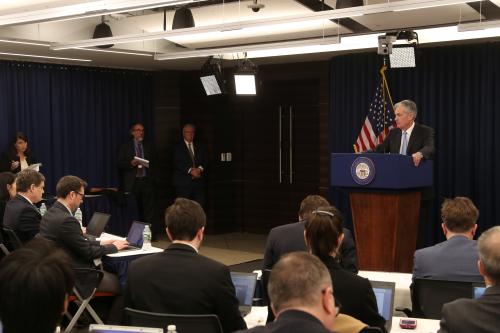This paper is part of the Fall 2018 edition of the Brookings Papers on Economic Activity, the leading conference series and journal in economics for timely, cutting-edge research about real-world policy issues. Research findings are presented in a clear and accessible style to maximize their impact on economic understanding and policymaking. The editors are Brookings Nonresident Senior Fellow and Northwestern University Economics Professor Janice Eberly and James Stock, Brookings Nonresident Senior Fellow and Harvard University economics professor. Read summaries of all five papers from the journal here.
Abstract
The fact that declines in output since the Great Recession have parlayed into equivalent declines in measures of potential output is commonly interpreted as implying that output will not return to previous trends. We show that real-time estimates of potential output for the U.S. and other countries respond gradually and similarly to both transitory and permanent shocks to output. Observing revisions in measures of potential output therefore tells us little about whether changes in actual output will be permanent or not. Some structural VAR methodologies can avoid these shortcomings. These approaches suggest a much more limited decline in potential output following the Great Recession.
Citations
Coibion, Olivier, Yuriy Gorodnichenko, and Mauricio Ulate. 2018. “The Cyclical Sensitivity in Estimates of Potential Output.” Brookings Papers on Economic Activity, Fall, 343-441.
Conflict of Interest Disclosure
The authors did not receive financial support from any firm or person for this paper or from any firm or person with a financial or political interest in this paper. They are currently not officers, directors, or board members of any organization with an interest in this paper. No outside party had the right to review this paper before circulation.
The Brookings Institution is committed to quality, independence, and impact.
We are supported by a diverse array of funders. In line with our values and policies, each Brookings publication represents the sole views of its author(s).







